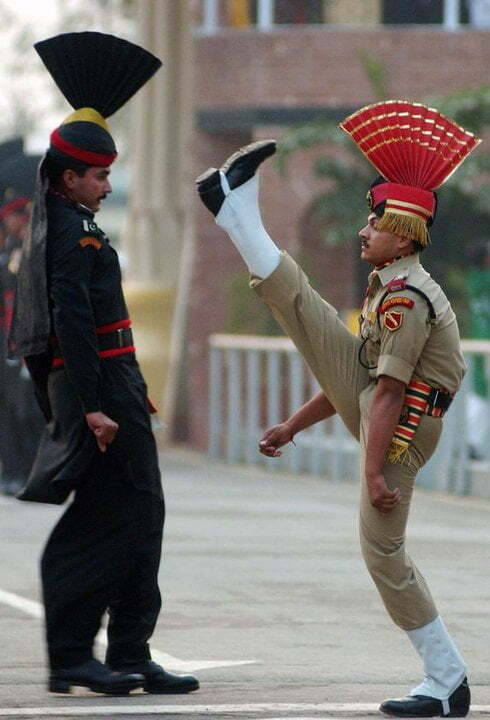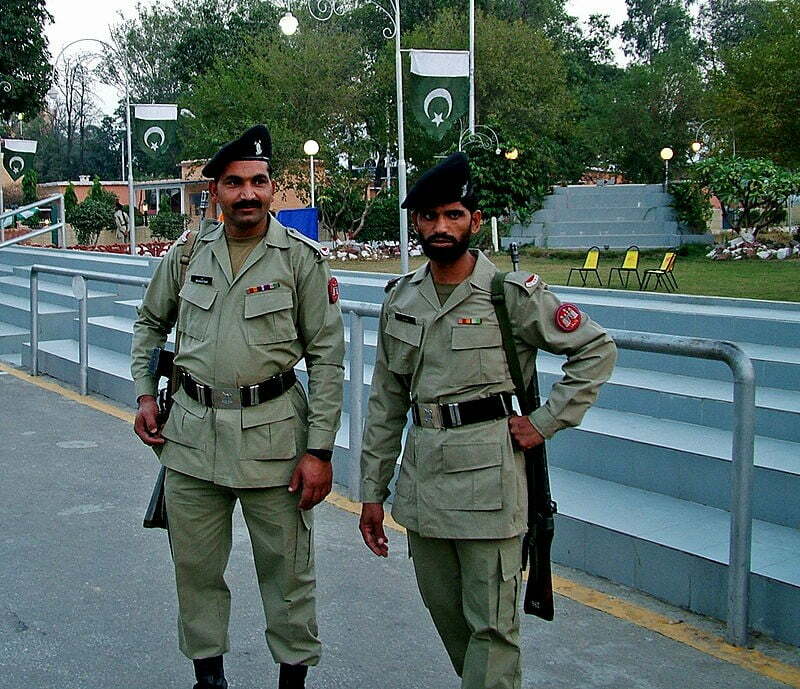
The main operative point of the decade-long foreign policy pursued by the Congress-led UPA Government was peace with Pakistan at all costs. It gave Pakistan an opportunity to destabilise India. At the same time, the non-state actors on its pay continued fruitless talks with India to allay the fears of the world, especially America and other Western countries of a nuclear flash out with India.
It was the scenario when Modi government came on the scene nine months back. Modi took a clear-cut stand on Pakistan in his election rallies and cancelled the Foreign Secretary-level talks with Pakistan in Aug 2014 because Pakistan was trying to promote the separatist as the third party in Kashmir dispute. All this was a breath of fresh air. The country took a sigh of relief that finally we have a firm leader at the helm — a clear cut Pakistan related policy is going to evolve.
Recent actions of Modi government do not support this belief.
Recently at the Pakistan day celebrations, the Pakistani High Commissioner in India invited the separatist Hurriyat leaders from Kashmir valley at the function held in Delhi. The Minister of State for Foreign Affairs General VK Singh – a former Chief of Indian Army Chief was also one of the invites. Reportedly Gen Singh was not happy to go but went there as part of protocol and duty. The big question is — suppose India day function is being held at the Indian embassy being attended by separatist leaders from Baluchistan, would the Pakistani Ministers have attended this function– protocol or otherwise?
In August 2014, the Modi Government cancelled the foreign secretary-level talks between India and Pakistan because Pakistan held talks with separatist leaders in J&K despite the being told not to do so. It was a bold decision which stumped Pakistan which had made it a practice to indulge in mischief and get away with it. Modi Government firm stand was large appreciated in the country. Peeved Pakistan declared that for any talks in future the initiative must come from India. Still Pakistani Prime Minister Nawaz Sharif raised the issue of Kashmir in UN general assembly in September. This time he got a rebuff — not only from Modi –but other world leaders who more or less told Sharif to resolve the issue bilaterally with India.

In frustration, Pakistan resorted to large-scale cross-border firing in Jammu region across the international border in September. Once again, the Modi government stood firm and gave orders to Indian Army and BSF to give a fitting no holds barred reply.
It was a paradigm shift for the Indian Armed forces which just could not effectively due to political restrictions placed on them during the UPA rule. Given the operational freedom, the Indian Army and BSF retaliated so effectively that Pakistan lost lot of their soldiers and suffered collateral in terms of 70-80 posts destroyed. Pakistan Army, now thinks twice and is careful in opening fire since then
However, things changed after Obama’s visit to India and summit with Prime Minister Modi in Jan 2015. Suddenly India started behaving the same way as it used to do during the UPA regime.
Recently the new Indian foreign secretary Jai Shankar was dispatched to Islamabad for talks under the garb of SARRC YATRA.
India reportedly conveyed to the Pakistani high commissioner that it had no objection if Pakistan invited the separatist’s leaders for the Pakistan day celebrations in Delhi. General VK Singh was despatched to attend the said function.

Meanwhile two back to back terror strikes took place in Jammu sector with the Pakistani army sponsored jihadis from across the border striking a police post and an army installation. India did not make the hue and cry it had been making till now after the arrival of Modi government. Surprisingly India did not retaliate. So what is happening? What has changed?
America is withdrawing from Afghanistan, and it has to take out all its heavy military equipment via land route to Karachi harbour. Afghan Taliban, the Haqqani network operating in Afghanistan with the clandestine help of Pakistan Army as also Pakistani Army does not want this to happen.
Instead, they want to warm up the Indian border – an excuse to withdraw its troops assisting the US withdrawal to the eastern border with India.
Needless to say, the apparent softening of Indian stand against Pakistan has been under American pressure.
But what is India getting in return? And what about the Indian national interest?
It is pertinent that the Modi Government to frame a coherent long-term Pakistan policy after taking into confidence, the opposition parties, armed forces, Indian think tanks and other institutions connected with the foreign policy.
Come what may, India should then stick to a sensible Pakistan policy with a long-term perspective. In doing so, the national interest should be supreme.

